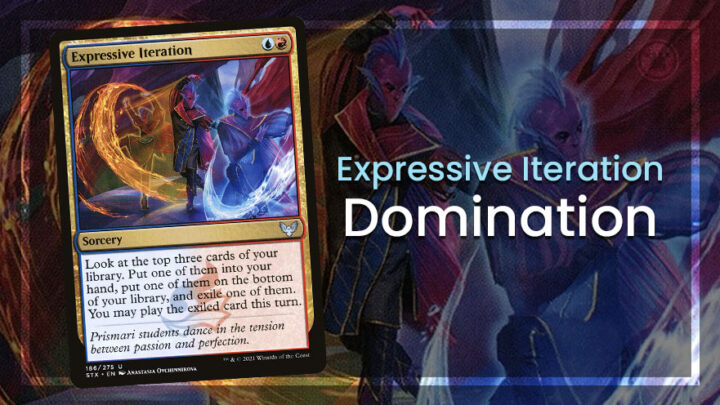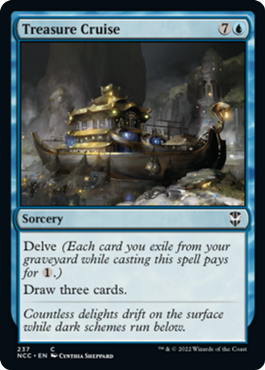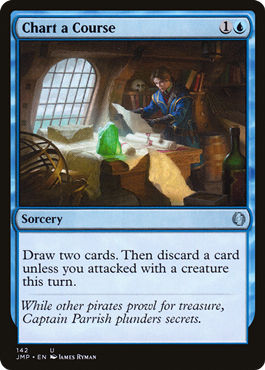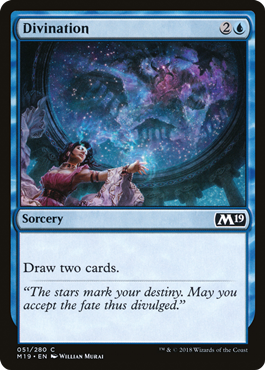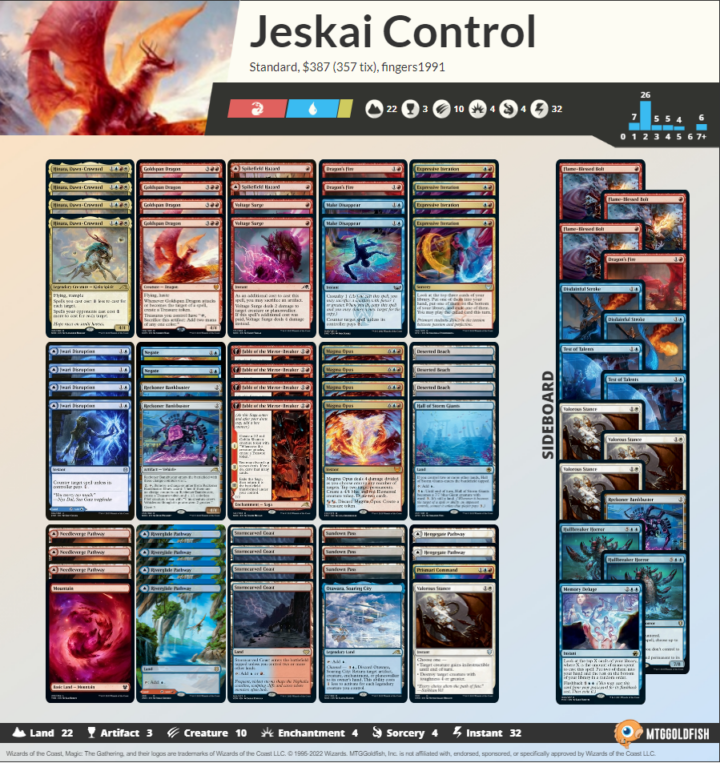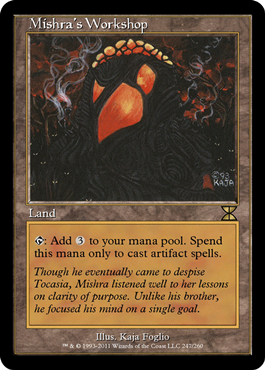Expressive Iteration is in every top deck in every format it’s legal in. If you go and check the data, Standard, Modern and Legacy are all run by the best card draw spell printed since Treasure Cruise. Pioneer, a format where Treasure Cruise is legal, recently banned Expressive Iteration.
So, how is this little uncommon that didn’t even get noticed during preview season warping everywhere it touches? Let’s find out, together.
Why is it good?
Iteration has two huge strengths compared to other “draw two” effects. The first big one is card selection.
Expressive Iteration lets you pick the best two cards of your top three. Getting to pick the best cards for a given situation gives players more agency when sculpting their game plan during early turns. In the later turns of the game, you’re also able to more consistently find the answer to the problem in front of you. This is especially true of formats like Legacy where your sideboard cards often have incredibly high impact — so finding them is exceedingly valuable.
The second big thing going for Expressive Iteration is being a two mana draw two spell that has no real draw backs aside from being mediocre on turn two itself. Look at Chart a Course, by comparison. While that card is sometimes a hard draw two on turn two, you have to do some extra work to get there. Expressive Iteration will always grab two cards.
It even shines when compared to the normal mana cost of “draw twos.” Look at Divination for a classic example, or Pieces of the Puzzle for a modern example. You’re spending three mana to get those two cards in each case. This one mana is a crucial difference because you almost always want to draw cards and then play cards when casting these spells.
That’s why instant speed card draw is often very good. You can do it on their turn and then unload your newly drawn cards. So, when you’re having to use three mana to get the cards, you’re left with less mana to spend whatever you find. That makes your more impactful cards harder to cast, on average.
This also ties into the first point. Since you’re getting more selection and spending less mana, you’re just getting way more for your card and mana investment than most other options, all with no set up cost.
Warping formats
Now that we understand why the card is strong, let’s explore why it is warping all the formats it’s still legal in.
The stronger the answers and threats are in a format, the more powerful Iteration becomes. Take Legacy, for example. All the threats take over a game on their own if unchecked, and all the answers are very cheap — normally not costing more than one mana.
This means Expressive Iteration’s only drawback of having to cast one of the cards on the turn you cast Iteration is actually negated. Being able to deploy your huge card advantage spell early means you’re able to quickly gain the lead and start pulling ahead, while still having the late game option available. We see this in Modern as well, where cards are, on average, a little more expensive but still very cheap.
Standard is the one format where Iteration isn’t grabbing cards quite as cheap. That is often an environment where card advantage and making profitable trades will put a deck way above the rest. Iteration has shone through its whole life in the format. While not being as oppressive as it is in formats like Legacy, the card still maintains the same problematic signs.
Should Expressive Iteration be banned?
This examination of Expressive Iteration’s problems does raise the question of whether this sort of card is too much for current Magic? Does it provide too much for too little? Well, the answer should come on a case by case basis, so let’s make some judgment calls.
Legacy
Yes, Expressive Iteration should be banned. Legacy has a Brainstorm–Daze problem, but those cards have sort of become part of the format’s identity in such a way that we can’t remove them, much like Mishra’s Workshop in Vintage.
Instead, we have to ban around those cards. With all that in mind, Expressive Iteration offers too much card advantage and selection when combined with all the tools available in Legacy.
Modern
Someday Expressive Iteration should be banned, but not today. As Modern continues down its current trajectory of cheaper and cheaper answers to threats, the format will hit the same critical mass as Legacy. But for right now there, are enough other problems to take a look at first — which we covered in this article a few weeks back.
Standard
No, Expressive Iteration doesn’t need a ban. The format is about to rotate in just under two months, so there is no real need to shake things up for the paper and Arena players. They can go off into the sunset with their broken Izzet card.
Now, whether Iteration is legitimately broken or not is up for debate, most players should be able to agree it walks the line very close. Everything we highlighted today points to that fact, and so does the way its mere existence pushed decks like Rakdos Midrange out of Pioneer before the ban — even when the archetype was still good into Winota, Joiner of Forces decks.

In fact, I think as we move forward with banning that card in more formats, we will see just how many decks that single card is oppressing. But what do you think? Should Expressive Iteration be banned across the board? Tweet @masoneclark_ and let me know your thoughts!

Mason Clark is a grinder in every corner of the game who has played at the pro level and on the SCG Tour with Team Nova. Whether he’s competing in Standard, Historic or Modern, Mason plays with one goal in mind: to be a better player than he was the day before. Check out his podcast, Constructed Criticism, and catch his streams on Twitch.

